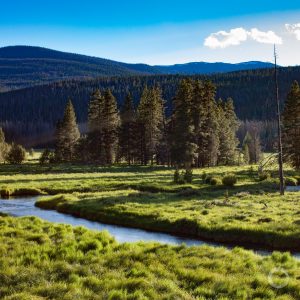The Stream, January 12: Development Threatens Lakes And Wetlands In Cambodia
The Global Rundown
A new city growing on the outskirts of Phnom Penh could fill in a series of lakes and wetlands, displacing local communities. A deal between the government and rebel forces in Syria may restore water to Damascus. A peatland in the Congo holds vast amounts of carbon, highlighting the need to protect it from drainage, scientists say. Frequent and severe droughts in Zimbabwe have prompted conservation workers to drill boreholes to provide elephants and other wildlife with water, while human residents are embracing rainwater harvesting.
“The agreement that was reached in principle requires the militants to give up their heavy weapons and for non-local militants to leave the area of Wadi Barada. (Then) the Syrian Arab Army will enter the area to clear it of mines and bombs to prepare for the entry of maintenance teams… to fix the damage caused to the water pumps and pipes by the terrorists’ attacks.” –Alaa Ibrahim, provincial governor of Damascus, announcing a deal between the Syrian government and rebel forces to restore water supplies to the capital city weeks after they were cut. Rebel officials, however, disputed reports about the deal, claiming it was “psychological warfare.” (AFP)
By The Numbers
2,752 hectares Area slated for ING City, a huge development outside of Cambodia’s capital, Phnom Penh. The site is currently covered by wetlands and lakes that will likely be filled in, displacing communities that depend on them for fishing and agriculture. ABC
8,000 elephants Number served by a network of 34 boreholes that deliver more than 1 million liters of water a day to animals in Zimbabwe’s Hwange national park, reducing the risks to wildlife from droughts. Guardian
Science, Studies, And Reports
A vast peatland covering 145,500 square kilometers in the Congo Basin holds an amount of carbon equal to 20 years’ worth of fossil fuel emissions from the United States, according to a study published in the journal Nature. Though the peatland is remote, researchers worry that agricultural development could someday drain the wetlands and release the carbon into the atmosphere. Guardian
On The Radar
Frequent droughts and water shortages are prompting an increasing number of residents in Zimbabwe to install rainwater harvesting systems in their homes. Still, the systems can be prohibitively expensive and are present in just 5 percent of households so far. Reuters
A news correspondent for Circle of Blue based out of Hawaii. She writes The Stream, Circle of Blue’s daily digest of international water news trends. Her interests include food security, ecology and the Great Lakes.
Contact Codi Kozacek




